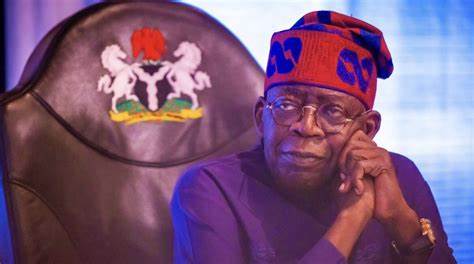President Bola Tinubu has defended his administration’s decision to remove the subsidy on Premium Motor Spirit (PMS), commonly known as petrol, during the opening of the 17th Annual Chartered Institute of Bankers of Nigeria (CIBN) Banking and Finance Conference held in Abuja on Tuesday.
Represented by Vice President Kashim Shettima, Tinubu described the subsidy removal as a vital move to unlock funds for essential national investments.
The President emphasized that eliminating the petrol subsidy was part of broader economic reforms aimed at revitalizing Nigeria’s macroeconomic framework and restoring investor confidence. He acknowledged the interconnected challenges facing the country, asserting that these reforms are necessary to stabilize and strengthen the economy.
This year’s CIBN conference, themed “Accelerating Economic Growth and Development: The State of Play and the Way Forward,” was highlighted by Tinubu as especially relevant, given the current state of Nigeria’s economy. He noted that the platform provides financial experts and policymakers an opportunity to discuss strategies for economic recovery amid ongoing reforms.
“We have initiated bold reforms to reshape the macroeconomic landscape,” Tinubu said. “Our goal is to rebuild trust in the Nigerian economy by tackling inflation, stabilizing the foreign exchange market, and improving fiscal management.”
He further explained that while the removal of fuel subsidies may cause short-term discomfort, it is intended to redirect budgetary resources toward critical infrastructure projects and social services. He added that the administration’s frequent adjustments to the monetary policy rate are aimed at curbing inflation and fostering a more market-driven exchange rate system.
Tinubu also reaffirmed his government’s commitment to expanding infrastructure development as part of efforts to spur economic growth. He called for collaboration among government entities, private industry, and civil society organizations to ensure that economic policies are aligned with global trends.
“To achieve sustained economic growth, we must intentionally synchronize our policies and actions with the evolving global economic landscape,” he said. “The government remains dedicated to implementing reforms that enhance macroeconomic stability, reduce inflation, and promote infrastructure development.”
Earlier, CIBN President and Chairman, Prof. Pius Deji Olanrewaju, urged stakeholders to critically reflect on Nigeria’s economic challenges and work towards innovative solutions. He recognized the country’s journey toward growth and prosperity but acknowledged the significant hurdles currently being faced.
Olanrewaju also pointed out that while the Central Bank of Nigeria has introduced various monetary policies to address these economic concerns, their success largely depends on the professionalism and patriotism of financial sector operators.
In a goodwill message, the Chairman of the Economic and Financial Crimes Commission (EFCC), Ola Olukoyede, pledged his agency’s support in sanitizing the financial system and enforcing laws to combat financial crimes. He urged bankers to prioritize the nation’s interests over profits, emphasizing that sustainable economic policies can only thrive when stakeholders remain committed to national development.


















